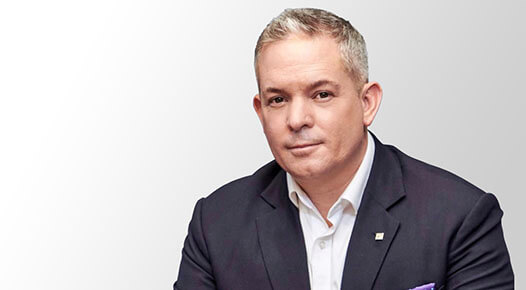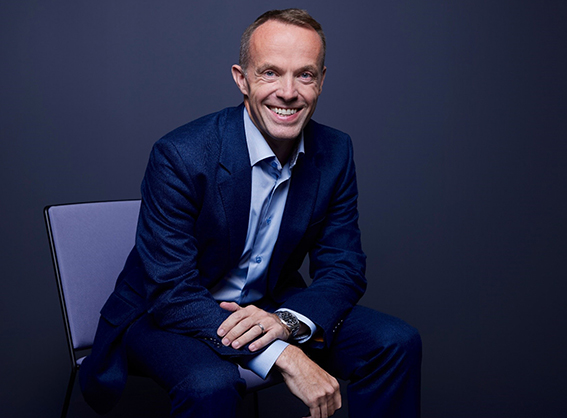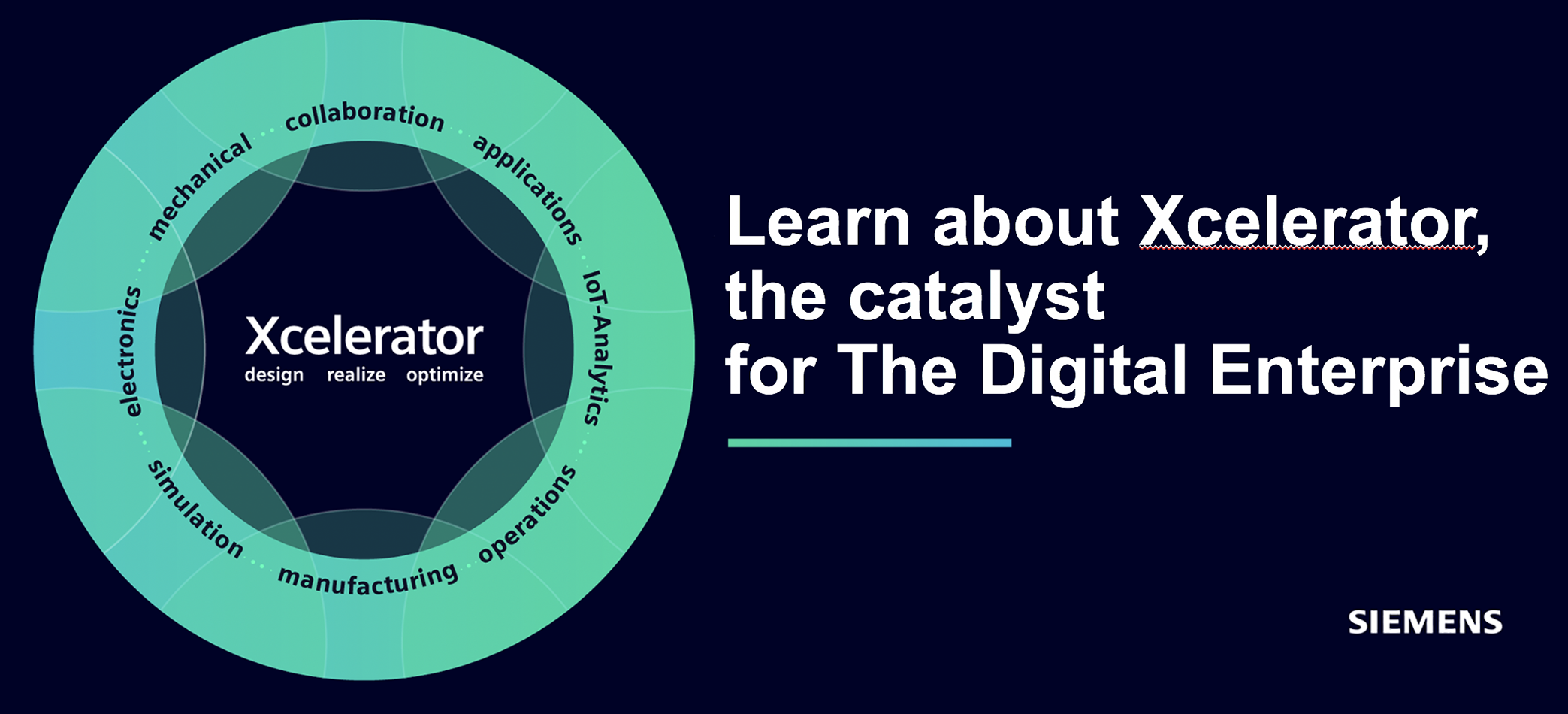It is said that newly appointed top managers and officials have a 100-day honeymoon in their new post. However, it is uncertain whether this applies to the new IFS head, Mark Moffat. The CEO role for IFS meant getting straight into hot air and deliver results directly. As mentioned above the company has been very successful for the past five years with double-digit growth figures under outgoing CEO, Darren Roos, who by the way has taken on the role of executive chairman of the board. That really raises the bar and the company’s “Moment of Service” concept has greater validity than ever. it is, to paraphrase this IFS’ own slogan, a “Moment of Truth,” for Mark Moffat.
“For me, this means that when we sell a solution to our customer, we don’t stop only with what they need the solution for, but how is it being used to enhance their end-customers experience. That yields all sorts of opportunities to help customers to think about new revenue models, new business areas, and new services that they may build to help their own customers. That also helps increase the function adoption of our solution too,” says Mark Moffat, who indeed has a world-class software legacy to manage.

Five focused industry segments
In this IFS’ technologically advanced Applications and Cloud suites play leading roles. Specifically, this is the case in IFS’ five focused industry areas: Aerospace & Defense · Energy Utilities and Resources · Construction and Engineering · Manufacturing · Service Industries.
Among respected analysts, such as Gartner and IDC, the platforms have been ranked several times in leading positions, including Gartner’s so-called Magic Quadrant for ”single-instance midmarket centric ERP.” Same thing with regard to IDC’s MarketScape for field service, FSM – Field Service Management – where for the 2023-2024 evaluation it is placed as a strategic top in the leader wave. This while IFS’ relatively newly established cloud platform, IFS Cloud, is already positioned high in Gartner’s visionary quadrant.
Growing the number of customers who have stepped onto the cloud is also a priority:
“Yes, we have more than a thousand customers live in the cloud, which includes all the advantages of this technical platform: Infrastructure, software innovation, AI and much more. That being said, we will not leave any customers behind. We still have a number of customers enjoying great benefits from our previous products on premise. It’s a careful navigation to make sure that we make it easy for them to make the move to the cloud.”
Tough external conditions
During Darren Roos’ period as leader, IFS has experienced several major successes in the way the business is run. The technology has developed well and as mentioned, the company has delivered very good financial results. This puts pressure on the successor, Mark Moffat, to contribute with continued good results, and this in an era characterized by global concerns such as war, political polarization, recession and climate challenges. What does he see coming in 2024 in terms of the effects these conditions produce; can the fantastic earnings trend continue?
“Yes, I really believe we can. There are several reasons for that, but important is that our technology and our business is about optimizing operations and reducing costs for our customers. But also, to find ways to make supply chains more efficient. That’s also what our software does, and I think there’s a sustained demand for what we come up with because it’s largely about managing the cost base. That’s always interesting for companies that wants to remain competitive.”
“Today we certainly see a tendency towards longer sales cycles compared to couple of years ago. But on the other hand, there are good signs: interest rates are starting to ease in the US, which is one of our growth markets; while both Europe and the UK in and of themselves look more uneven in this regard.
In the customer base, Moffat further claims, a certain optimism can be detected.
“I have committed to meeting a hundred of our customers during my first hundred days,” he says, and continues: ”And I have a good feeling here. Our customer base feels optimistic about the macroeconomic environment. However, they don’t press the gas pedal to the bottom for the sake of it. We need a few more quarters to see the trend go in the desired direction and to see more investments made available.”
In this context, the new IFS leader indicates that the company’s sales organization is a formidable asset.
“Absolutely. In terms of the discipline we have in our sales organization, we have a very sharp and efficient management of our customer pipeline. But we also make high demands on our employees, with a rigorous qualification before starting work. A big value in this is that we know what we can add in value to our customers and we know fairly quickly if we might not be the right choice. Important that too. These factors and many others help us maintain our growth rate. Do I feel pressure in this? Yes, absolutely, but I know I’m sitting on a strong foundation, an excellent product, a highly motivated workforce and a committed management team, who, through a couple of already announced changes, have given us some new blood and hungry energy.

About the collaboration with Darren Roos
Darren Roos will remain in what still looks like a heavy role on the company’s board. He has undeniably meant a lot and is a strong leader, who, in his position as chairman, will also remain in an executive role. How is he to work with?
“First, as in our case: Darren Roos remaining as executive chairman is not unusual. We see many examples of that, especially in North America. From my experience and in terms of how Darren and I have worked together within IFS prior to my appointment – and how we have worked after this – it is a good, well-functioning model. I get the benefit of having Darren’s experience available to me immediately when I need it. We also benefit from the continuity of this at board level and from an investor perspective. It provides advantages such as Darren being able to spend time thinking about our broader ‘inorganic appetite’, i.e. how we can grow through purchases and bring in new technologies, for example.”
He continued:
“What we have done very practically is that we have agreed on what the distribution between us should look like; or how the loop is laid out, if you like. This is about things like delegation of authority between us. I think we also communicated these bits well to the operations organization and people understand his role in relation to mine. Honestly, the way we’ve done this so far is right by the textbook. Before I took the role, and after getting confirmation from the board that I was a candidate to succeed Darren, we did a few things early on: When we appointed the new CIO, I was involved in the selection process, as well as when we appointed our new COO. In addition, there are things like me being a stand-in for Darren in our town hall events. So, the organization was not shocked. For example, my entry was announced internally a week before our sales start, with 1,200 people gathered physically, in addition to everyone else online. It was a good platform for me to describe my thoughts, my ideas for our future and to show myself to the whole organization. But also, to confirm the continuation of our winning strategy according to the previously established 2025 corporate goals. I enthusiastically believe in them, so this is not about a radical change or a revolution. It is continuity, it is evolution.
Ideas about the future of IFS
Continuity, then, but the business system world is dynamic with an explosive development today. New technologies and new ideas have a given place in this, of course. So, what was Moffat’s new future ideas all about?
“I talked about things that will be very much part of our narrative and help us continue to scale up as an organization. This touched on continued investment, development of our partners and making sure that we in turn really help them scale their businesses to take advantage of IFS Cloud and our solutions. All in order to create growth for them as well.”
This is one of the keys to the future. The partner ecosystem has been very successful over the past five years, an expansion journey that was initiated on a larger scale by Darren Roos’ predecessor, Alistair Sorbie.
“Indeed, and today we have over 400 partners in our ecosystem. But there’s still room for expansion here as we begin to sell more and more to multinational top tiers through some of the larger GSIs (Global System Integrators) such as Accenture, PWc, IBM, Capgemini and others, helping them build end-to-end practice.
“Having said that, we know that we are enormously successful in companies that are located
in the revenue range of 1 to 5 billion dollars. Not that we dominate the multinational segment beyond that, but it’s good to have some of these ”lighter” accounts and really use them as a way to think through our roadmap to develop the product. Together with this and other force multipliers, we see great potential for developing recognized multinational brands using an IFS Cloud platform.”
Another thing Moffat addressed was the desire to take the IFS brand to a new level.
“Five years ago we were a top-line business of 500 million euros, now we are over a billion. Of course, we are well known in the Nordics with a high brand awareness. But in North America and the UK we are, and will continue to be, putting a lot of effort into making our brand better known and understood. In North America, for example, we have signed a technical partnership agreement with the large Collage Athletic Conference, which reaches an audience of many tens of millions across the entire region.

”When a global CIO thinks of EAM, he or she should immidiately think of IFS”
Another venture Mark Moffat continues to focus on is gaining ground within EAM, Enterprise Asset Management. This concerns the management and maintenance of industrial facilities, workshops, aircraft fleets, factories, manufacturing equipment and the like. In this EAM is a combination of software, systems and services.
For this combination to work in the most efficient way possible, integration and far-reaching simplicity of use are of fundamental importance. How to achieve this?
Moffat sees great opportunities, among other things, because IFS has a sharp portfolio already as it is, but also because the area has enormous potential in light of the digitization development in the manufacturing area, for example.
An exciting perspective in this is the broader APM area, Asset Performance Management, where maintenance does not stand alone, but is paired with integrated solutions to sharpen the performance of factory facilities. Undoubtedly a technological potential for IFS to expand within and win new customers.
“But we’re already really strong in the assets and services business and my dream is that we become internationally synonymous with this functional area, so that every CIO on the planet, when they think of asset management service challenges, will immediately think of IFS.”
The new CEO adds that IFS has some really strong AI capabilities in this area.
“We want to be dominant in industrial AI. Smart, connected factories, for example. Here we have some very sharp solutions for the workshop environment in terms of asset performance, management and predictive maintenance. In this we have solutions for planning, scheduling and optimization, PSO. Everything is AI-based and in many cases helps large field forces to be optimized. Route, scheduling, fueling, all attributes help customers reduce their cost base by 25 percent on average when deploying PSO in scaled field organizations. But there is, as you note, more to be had here.
AI is undoubtedly one of today’s hypertrends – are IFS customers ready to exploit the full potential of improvements that artificial intelligence can bring?
“One hundred percent they are, yes. Generative AI for me has put a spotlight on technology investments for all of our clients. Boards today are asking CIOs and functional leaders: ‘How can we deploy AI in our environment? What’s the cost benefit? How do we get increased productivity?’ For us, this means that we can take advantage of the still somewhat vague nature of generative AI and remind our customers about today’s AI capabilities that we have, with machine learning, predictive capabilities, etc.
What do IFS customers expect from their AI investments?
“Increased productivity, lower cost, increasing first-time fix speed, uptime in plans and machines, maintenance at record levels, enriched data that allows them to think about new revenue streams. For example, we have a manufacturing customer with an aftermarket service. When we discussed with that customer the application of our technology, it turned out that we could help them sell the service to the end customer base. So, now they use our machine learning AI capabilities to offer it in return to their customers, thereby introducing a B2B model.”

About field service and the servitization trends
The term ”servitization” is one of the expressions that has been used to a growing extent in industrial operations during the last decade. Moffat was on topic in the customer example he used above. Stylized, this is about sharpening an organization’s products and processes so that better value can be created, both for the manufacturer and for their end customers. Basically, this is a shift from selling products to selling the product as a service.
CRM (Customer Relation Management) and SLM (Service Lifecycle Management) solutions play important roles in this, as well as linking these areas with PLM (Product Lifecycle Management). Rolls Royce is a well-known example of servitization, where they changed their business model from the sale of jet engines to the sale of engine traction power per hour.
Servitization is also an interesting area for IFS where it has been successful. For example, IFS received high scores and positioned itself as one of the top leaders in analyst IDC MarketScape’s latest 2023 graphic. This is also a growing side of IFS’ operations.
“Yes, massively growing as well. Our customers are thinking about how they can improve their offer to their own customers and how they can execute stronger services. In this, we have developed the ‘Moment of Service’ concept, explained above.
On top of this, IFS is also strong in FSM, Field Service Management – what does Mark Moffat see coming in this area?
“Increased adoption. There is so much demand for modern solutions and our pipeline is strong. There is still much older technology that needs to be replaced with modern technology. We have this on our table.”
The first impressions
There is, of course, more to say about the way forward for IFS, which has thus developed into a veritable success. With Mark Moffat at the helm, you get a steady evolutionary continuation, where above all the partner ecosystem has a key commercial role.
But the future views are not only mundanely oriented, here there are also exciting visionary dreams of winning global dominance and conquering new ground, especially on the EAM side.
The company’s new CEO’s first impression of the job is also nothing that contradicts the possibilities of success in this and other companies.
“We have every opportunity in the world to succeed,” says Mark Moffat. “My first impressions of the CEO job couldn’t make me more excited. Customer demand for example – I was in Chicago last week and met with a number of large utility customers. They love our product, love what we do and they love our deep understanding of our industry. One customer in particular couldn’t wait to be an advocate for us. So there’s a lot of enthusiasm for what we’re bringing to market, not least related to what we can do compared to our competitors.”






